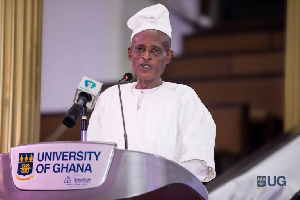To ensure that the country’s hydrocarbon resources are used to deliver prosperity, there must be good governance as well as implementation of petroleum laws to the letter, the Public Interest and Accountability Committee (PIAC) has said.
Ghana began commercial production of oil in December 2010; but 10 years down the line, the Committee said, there is very to show and the country must chart a new course if it is to avoid joining the list of ‘oil curse’ nations.
In a report, ‘Issue Paper on the Management and Use of Petroleum Revenue’, the Committee bemoaned that poor governance, lapses in revenue collection and diversion from the Petroleum Revenue Management Act (PRMA) has so far denied the country from using oil to propel its growth and development
“The mistakes from mining, timber – and generally our natural resources – became a hurting effect going into oil. So we said we were going to do better with oil, but we are getting back to what we said we would not do. And if we continue this way, the outcome of the over-100 years of mining is still waiting for us in some 40 or 50 years to come with oil,” PIAC’s Chairman, Noble Wadzah, told the B&FT.
He added that petroleum is a finite resource, hence the need for effective governance must not be lost.
It further highlighted that weaknesses in management and utilisation of the Annual Budget Funding Amount (ABFA), revenue collection, management and utilisation of the Ghana Petroleum Fund, as well inconsistent implementation of the PRMA over the past 10 years. These, Mr. Wadzah noted, undermine efforts to use oil to turn the country’s socio-economic fortunes around.
“The issues we raised were persistent in the last 10 years, and if we continue like this, then it is mostly likely to undermine our intended purpose of using oil to turn the economy around,” a worried Mr. Wadzah noted.
Mr. Wadzah, who spoke at the report’s launch in Accra, said the purpose of the report was to highlight these challenges in a single document to ensure urgent attention, seek redress and ultimately insulate the upstream petroleum sector from the resource-curse phenomenon in sectors like mining.
On the issue of the ABFA, the report said non-utilisation of and accounting for the ABFA has become a worry and a risk area. “PIAC’s visit to some projects earmarked to receive petroleum revenue revealed that they have been starved of funds at the same time when revenues are reported to be utilised and unaccounted for.”
The Committee also said allowing international oil companies to defer or not pay surface rentals undervalues the Ghana Petroleum Holding Fund, and as such does not comply with the PRMA.
Although some of these issues have been consistently raised in the PIAC’s annual reports, they have attracted little attention. “Ten years into oil is an appropriate moment to reflect on how well or otherwise we have done with our oil. It is our belief that these issues will receive the needed attention among critical stakeholders,” Mr. Wadzah concluded.
Business News of Monday, 17 August 2020
Source: thebftonline.com
For oil to deliver prosperity, we must commit to good governance – PIAC
Entertainment

What Bullgod said about going to prison for the NDC
Opinions










